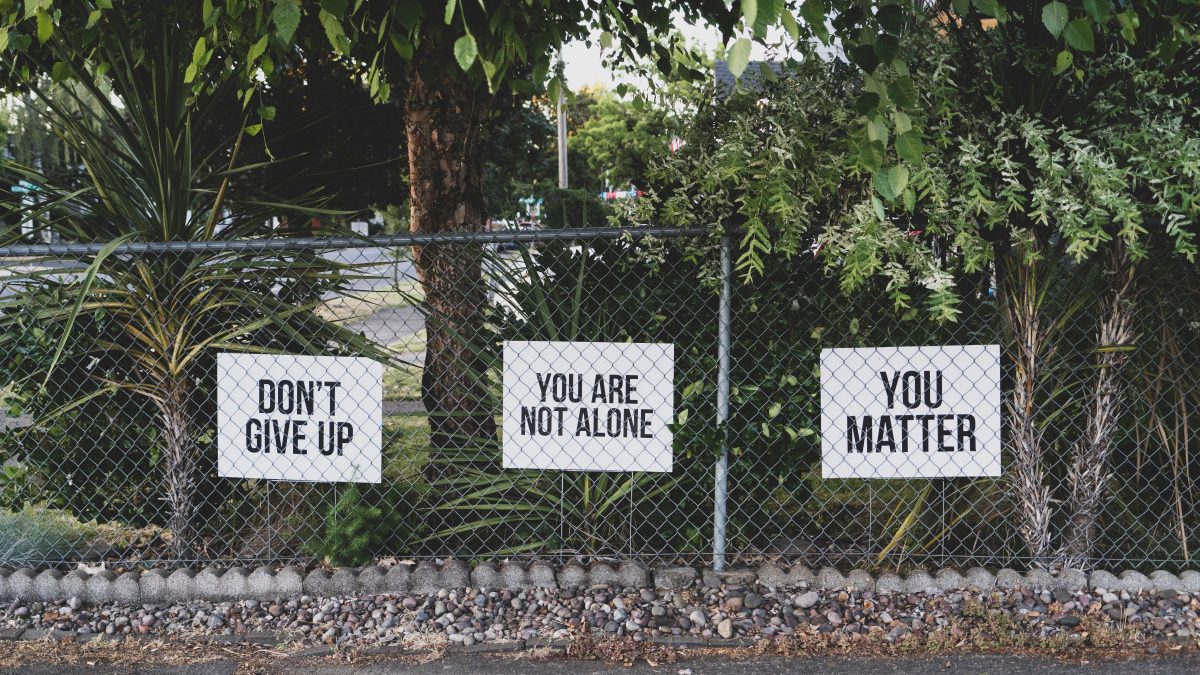Ending the Stigma of Mental Health

New Year, New You
January 21, 2020
Keeping Healthy During COVID-19
April 2, 2020Ending the Stigma of Mental Health
I have been working in mental health for 18 years and I have seen a lot of people affected by the stigma with mental health. The reality is that 1 in every 4 adults has a diagnosable mental illness according to the National Institute of Mental Health. The big question, then, is why does it seem to be perfectly acceptable to go to the doctor for a cough or sore throat but it’s much harder to go see a counselor or therapist when we feel anxious or sad? Let’s take a closer look at what this stigma means, how it can affect us, and what we can do to try to stop it.
What does mental health stigma mean?
Simply put, it is when a person is seen in a negative way or is labeled by their illness and stereotyped because of their diagnosis, for example, “he’s crazy or psycho” or “she is moody, so she must be bipolar.” I am sure we have all heard comments or phrases like these. Whether a person is joking or not these comments can be very harmful. I have worked with numerous clients who had postponed getting help for years because of those very reasons. Nobody wants to be labeled, called crazy, or judged. People are often scared to ask for help because they’ve been called names. Their symptoms have been referred to as “a phase” or something they can control “if they only tried.” They have been illegally discriminated against, with no justice. This is the unwieldy power that stigma holds.
What’s the big deal?
Stigma often causes people to feel ashamed for something that is beyond their control. Worst of all, stigma prevents people from seeking the help they need. For a group of people who already carry such a heavy burden, stigma is an unacceptable addition to their pain. What we as a society must understand is that having a mental health issue does not mean a person is weak or crazy. There are so many factors that contribute to Mental Health. Biological factors; such as genes, physical illness, injury, and brain chemistry, can affect a person’s mental health. There are also life experiences such as trauma, abuse, or neglect. Sometimes, it’s a family history of mental health problems or illness. Mental illness can very harmful if untreated. When a person with a mental health disorder does not get the treatment it could cause physical illness. These may occur as a result of stress, anxiety, nervousness, and depression which often go hand in hand with multiple mental health diagnoses. Personal relationships are often affected or can become strained. A person’s ability to cope with daily life can often become overwhelming or seem impossible. The longer a person neglects treatment the more risk there is for substance abuse, incarceration, or even suicide. This has to stop!
How can we change it?
- Talk openly and honestly about mental health. If depression or anxiety, ADHD, PTSD, or any other mental health diagnosis has affected you or someone you know, talk about it. You never know who is listening or who you can help by knowing they aren’t alone.
- Be conscious of your language. Do not use mental health diagnosis as adjectives to describe someone.
- Educate yourself and others when you can. Learn about mental health, learn about the statistics, the causes and the treatments.
- Choose to empower instead of shame. Encourage others to get help, own their story, share their story, and never judge.
- Encourage equality between physical and mental illness. When people understand the truth about mental health they often think twice about making comments. We certainly don’t seem to make fun of people with cancer or diabetes, for example, so why should we make fun of people with Depression or Anxiety
- Show compassion. Give someone a hug, offer support, listen, & encourage. Sometimes simply showing affection or compassion can help others realize they are not alone.
No matter how you contribute to the mental health movement, you can make a difference simply by knowing that mental illness is not anyone’s fault, no matter what societal stigma says. You can make a difference by being and living STIGMA FREE.
If you or someone you know struggling with mental illness we are here to help please contact our office at 606-676-0638. We offer a wide range of mental health services tailored to the individual. Give us a call and let’s grow together.
Mistie Robertson, LPCA
Intrust therapist since 2009
Related posts
Photo by Kouji Tsuru on Unsplash




